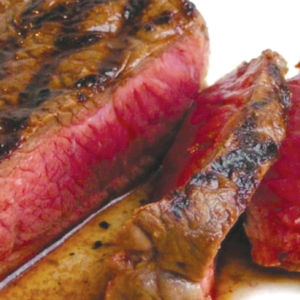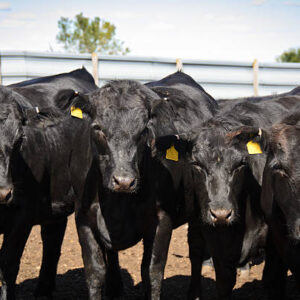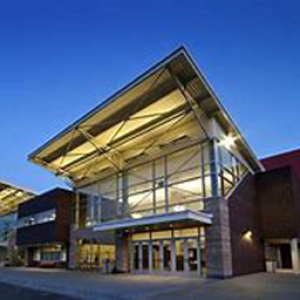No person shall be deprived of the right to examine documents or to observe the deliberations of all public bodies or agencies of state government and its subdivisions, except in cases in which the demand of individual privacy clearly exceeds the merits of public disclosure.” Montana Law
By Evelyn Pyburn
Mid-March we recognize National Sunshine week – it is a time to focus on the importance of open public meetings and public document availability.
Montana is at the leading edge when it comes to having good public information laws. Our public information requirements are more stringent than federal laws or the Freedom of Information Act (FOIA), but sadly Montana does not lead the way in complying with those laws. A (2019) study conducted by Logicull ranked the State of Montana among the least compliant with our own laws.
Having spent many years reporting on a wide variety of public entities, I know without doubt, that there is nothing more important to assure sound, honest government than shining light on all that happens in government. The Bill of Rights and honest democratic elections are very important, but even those things cannot be assured unless the public is informed about what government is doing. Checks and balances in how government is structured is also important, but even that can be useless if there is no “sunshine” on all proceedings and decisions.
Just think about it. How can citizens be expected to vote on candidates and issues if they do not have accurate information? Without unfettered information the idea of democratic elections is but a charade (something that should be just as readily understood when information and communication platforms are being censored).
I have learned a lot in observing how public bodies function and I have seen how devastating a lack of transparency can be, most especially those serving in a public capacity, who are often responsible for violating the law. In fact, I would refuse to serve on a public body that was not open in order to protect myself from the consequences. Not unlike other aspects of life, avoiding truth has a way of boomeranging sooner or later, and often in ways least anticipated and most unpleasant.
Most people do not realize how powerful our laws make our citizens, and that they do have the right to know – they have the right to be powerful in their own defense! The fact that an informed citizenry is a powerful citizenry is the primary reason that public officials hide information. That alone should convince one about how important the right to know is.
One of the most amazing experiences I ever had involved informing people about their right to know. It happened during my earliest years as a reporter when I wasn’t all that confident about things. My editor, as a matter of routine, gave all reporters business cards with the Montana public information law printed on it. At a meeting in Belgrade, Montana, a newly formed garbage district board wanted to hold a meeting to do things contrary to what the public wanted. There was standing room only in the meeting room and the board was frustrated in its efforts to ignore that public, and so arbitrarily decided they could avoid the problem by moving to another room.
Everyone in the room sat dejected about not being able to be part of the meeting. I knew the board was violating law, but I was timid about speaking up. I pulled out my handy little card thinking about what to do. The gentleman sitting next to me glanced over and began avidly reading it. I passed him the card so he could better read it. He then passed the card to the next guy, and then got up and followed the board members down the hall. The next guy, after reading the card, did likewise. And, one after another, as the card was passed along, everyone followed suit. It was a thrilling moment, as I saw firsthand the power of knowledge.
A lot of the public believes that open meetings and public documents are made available only to the media. Nothing could be further from the truth. Media has traditionally been the defender of those rights but they apply to absolutely everyone and everyone should view themselves as having an important role to play in assuring that every government official and agency complies with public information laws.
Unfortunately, in pursuing public information you should expect push back. FOIA advocacy groups report that not only can one expect it but “When it comes to compliance with open records laws, the barriers put up to obstruct requests (or lack thereof), and the general difficulty of making government records public, States vary wildly.”
“Come back tomorrow,” is a common put off aimed at discouraging. But you should know that information generally should be available during reasonable, regular business hours.
You cannot be required to explain why you want the information, nor for that matter do you even have to identify yourself.
While a government employee may declare they have to get approval of a supervisor, that is not a requirement of law. Public information is public information, and fundamentally it is every government employee’s obligation to provide it.
While it is commonly accepted that you can be charged for costs involved, such as copying charges, the charges must be true costs. You cannot, for example, be charged an outrageous per hour cost pertaining to the amount of time a bureaucrat spends getting the information.
Having said that, many FOIA advocates believe there should be no charge at all by government to produce information to citizens… in fact, providing public information should not only be part of their regular duties but a top priority. The Montana legislature, however, did pass a law allowing for agencies to ask citizens to reimburse for costs.
There is a limiting provision to Montana’s public information laws and that is to protect the individual’s right to privacy. As one can imagine in an attempt to strike a balance between the public’s right to know and an individual’s right to privacy, the competing provisions often lead to conflict. But court cases in Montana have quite often strengthened the citizen’s right to know.
So while a government employee’s personal information regarding health or address, family, religion, etc. is not public information, that they are a government employee, their job description, salary and benefits, or job performance are all public information. In fact one Montana court case concluded that even the job evaluation of a school superintendent should be open to the public and the results should be a matter of public record. Another case concluded that even an insurance company’s nondisclosure requirements in a settlement with the county was not valid – the settlement has to be a matter of public record.
Government quite often likes to claim that they can’t provide information such as who holds licenses or permits and their addresses or incomes, etc. on the grounds that it is private information but at that point there emerges a quandary, because since government is requiring the information or the fees or otherwise exercising control, it is a public concern. But, it is also private information. The fact of the matter is the individual’s privacy has indeed been violated, but it has been violated by government, and the public’s right to know should not be sacrificed because government has over-reached what its authority should be.
As government gains more and more power and over-reaches on a routine basis with no checks, this is likely to become an increasing dilemma and stands as a potential threat to the very fundamentals of freedom of information. There is only one thing that stands in the way of losing this most important of citizen rights and that is you and me using that right and demanding its adherence.




